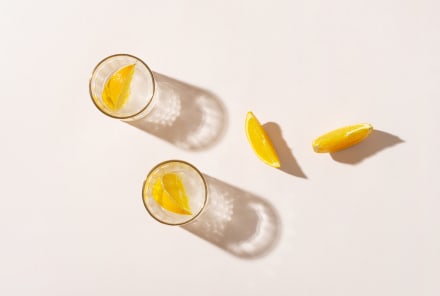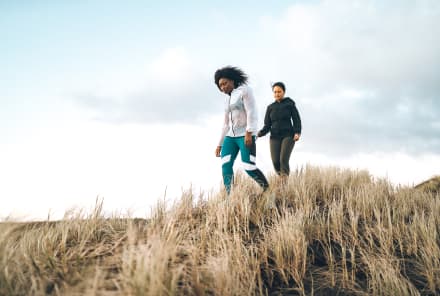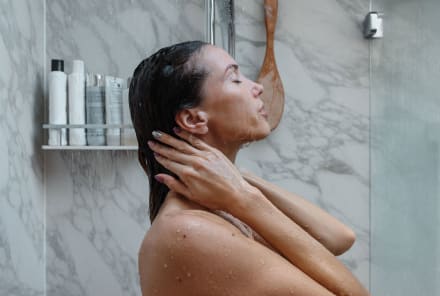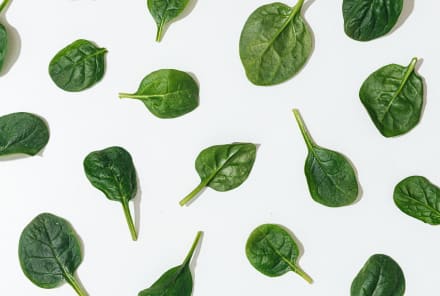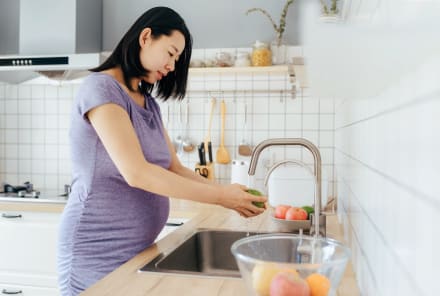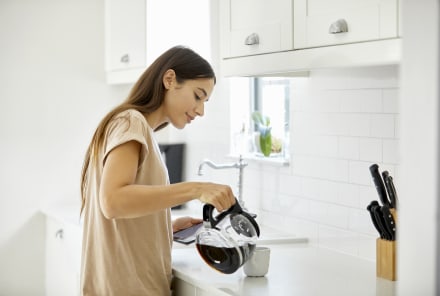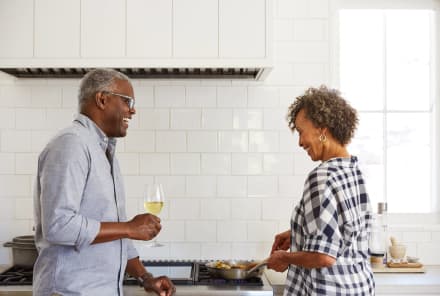Advertisement

While some health issues are visible to the outside world, many people face chronic conditions that don't have externally visible signs or symptoms—also known as invisible illnesses. In this mindbodygreen series, we're giving individuals with invisible illnesses a platform to share their personal experiences. Our hope is their stories will shed light on these conditions and offer solidarity to others facing similar situations.
It's sad but true—I was unwell throughout my entire childhood, in and out of the hospital with doctors at a loss for answers. I'm grateful that I've come an incredibly long way in my health journey, but those years of unknowing were some of my hardest.
Now, as a naturopathic doctor, mother of two, and women's health advocate, I hope to help others avoid the pain and confusion of a missed diagnosis.
As a naturopathic doctor, mother of two, and women’s health advocate, I hope to help others avoid the pain and confusion of a missed diagnosis.
I didn't fit the mold
It wasn't until I was 18 that I had even an inkling of insight into my health struggles, when a naturopathic doctor pushed for a diagnosis of celiac disease. I didn't have the typical presentation; I wasn't emaciated and malnourished as many doctors at that time expected. Rather, I was 100 pounds overweight, trying to eat well and work out, without results. I was completely inflamed.
An important factor that wasn't considered is that I had been on the birth control pill since I was 13, for painful heavy periods. As I learned about celiac disease and began considering other underlying causes for my symptoms, I decided to go off birth control. Then, I didn't get a period at all.
Diving into my hormonal health
At this point, I'm 19 years old and pursuing a career in obesity and immunology research. Getting off the pill and losing my period gave me an even greater desire to figure out my health problems myself, as I continued to hear doctors, acupuncturists, and other practitioners tell me they didn't have any answers.
At 21, I was told I would never naturally have children on my own, without medical assistance. Luckily for me, I have a spicy personality and I love proving people wrong. I wasn't going to let someone else make this life-changing decision for me.
So, I dove into research and worked on my hormonal health for several years. At 23, I finally got my period back. Unfortunately, it came with a slew of debilitating symptoms (like pain so severe I would pass out). This brought a lot of emotional strife with it because I did the thing I was trying so hard to do, get my period back, but I didn't feel grateful for how far I'd come.
I never stopped fighting for myself
My personal struggles and fasciation with holistic ways of supporting the body led me to study naturopathic medicine. At this point, I'm mid-20s, still suffering from severe period symptoms, and determined to someday have a family of my own.
I remember even in school we learned that pain is normal, but to a certain degree, it's worth exploring endometriosis. That was a lightbulb moment for me as I realized this could be what I'd been dealing with all this time. I assured myself I could figure out how to treat this, how to treat myself to finally feel better.
That's when I advocated for imaging but not with the results I expected. The ultrasound didn't show anything; therefore, I was told nothing was wrong. However, we now know that most people in their 20s have what's called peritoneal endometriosis, meaning the endometriosis is sitting as a coating on the lining of their organs rather than in large clumps. The large clumps are what would show up on a general ultrasound, while peritoneal endometriosis requires a moving ultrasound to be spotted.
But I didn't give up. I told myself if it walks like a duck and talks like a duck, it's probably a duck.
I continued treating myself for endometriosis according to my own research and was able to get to the point of having pain-free periods.
I assured myself I could figure out how to treat this, how to treat myself to finally feel better.
My fertility journey
At this point in my life, I was thinking more seriously about having children, but I knew I had to deeply support my body before getting pregnant. A year before trying to conceive, I went all in. I focused on a whole-body approach, like balancing my gut microbiome, regulating my immune system, and optimizing my egg quality.
Then, on our first try, at 28 years old, I got pregnant. That was my full circle moment. I remember thinking I needed to help other women have that moment so anyone who felt as betrayed by their body as I had could have hope and confidence in its potential.
At my first ultrasound, they found a 10-centimeter endometrioma, which is a large mass of cells similar to those in your uterus on the ovaries and a sign of severe endometriosis. I was told I'd need surgery because it could have a negative effect on my pregnancy. I was more worried about the actual surgery than the endometrioma, so I declined the surgery.
The reaction from my medical team was extremely uncompassionate and caused a lot of stress for me. Here I am, a doctor navigating the medical system, and despite my education and training, I was a victim of obstetrical trauma. I stuck to my intuition, though, and did not have the surgery and eventually had a healthy baby and uneventful birth.
Postpartum surprises
A few months postpartum, I began to experience chronic pain. At a certain point, I couldn't even lift my baby. My doctors believed it must be a birth-related injury.
After six months I knew it had to be endometriosis. I had shrunk my endometrioma using holistic methods from 10 centimeters to 2 centimeters, but clearly something was still wrong. I dove back into my personal pre-pregnancy treatment plan and again nurtured my body to a good place. I wasn't 100% pain-free, but I was definitely having a better quality of life and easier periods.
Then, I got pregnant a second time. I was a little over two years postpartum. I felt great during my second pregnancy and was lucky to have another happy, healthy baby. Since then, I've been able to manage the ups and downs of endometriosis without having it take over my life.
I wish it was more widely recognized that if you have pelvic pain and infertility, your chances of having endometriosis are around 90%. That’s no small likelihood, yet many women still struggle to get a diagnosis.
What I wish other women knew
Now, as a naturopathic doctor and mother of two who has weathered the trials of endometriosis myself, there are so many things I've learned that can help other women.
I wish it was more widely recognized that if you have pelvic pain and infertility, your chances of having endometriosis are around 90%. That's no small likelihood, yet many women still struggle to get a diagnosis.
While treatment for anything should be personalized—endometriosis included—there are three areas I almost always focus on with my patients that lead to positive results:
- Hormonal support is key, but it's imperative that endometriosis not be categorized as a hormonal condition. It's an immunological condition that is impacted by hormones. So we need to support hormone receptors and mitochondrial health and reduce inflammation to encourage a healthy hormonal cascade. I love using herbs and nutritional interventions for this purpose.
- Then there is the nervous system. When we experience pain and inflammation, our nervous system gets dysregulated and we feel stressed, but stress can also worsen pain and inflammation. I'm a huge proponent of enlisting beliefs-based therapy, like EMDR, to process the trauma and limiting beliefs that come along with feeling something is wrong with your body. People are often surprised to hear about this step, and then extremely surprised by the benefits.
- The immune component of endometriosis is one I'm very passionate about sharing. In my experience, I've seen many women with endometriosis have histamine intolerance (a type of immune reaction), which causes increased pain. Certain underlying viruses and bacteria can also drive inflammation. Using targeted nutrients and botanicals can help to support and modify the immune system and bring this inflammatory response down, which helps the entire body come back into balance.
There's never one clear path to healing for each individual's body, but there are certainly many themes I've seen common to women experiencing endometriosis and infertility. I hope my journey can help others feel more confident in their intuition and regain trust in their bodies.
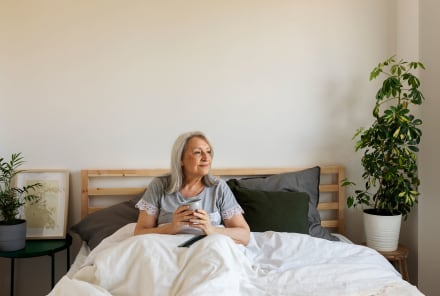
Do These Things To Reduce Your Risk Of Developing IBD By 61%
Gretchen Lidicker, M.S.

Do These Things To Reduce Your Risk Of Developing IBD By 61%
Gretchen Lidicker, M.S.

Do These Things To Reduce Your Risk Of Developing IBD By 61%
Gretchen Lidicker, M.S.

You Should Focus On Bone Health Earlier Than You Might Think — Here's Why
Dr. Vonda Wright, MD, MS

Do These Things To Reduce Your Risk Of Developing IBD By 61%
Gretchen Lidicker, M.S.

You Should Focus On Bone Health Earlier Than You Might Think — Here's Why
Dr. Vonda Wright, MD, MS

